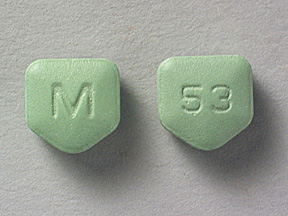
Cimetidine Coupons & Savings Card – Discount Prices from $20.77
Generic for: Tagamet hb, Cimetidine acid reducer, Sb cimetidine
My prescription
Edit
200MG, Cimetidine (60 Tablets)
Select pharmacy

CVS
$20.77
COUPON PRICE
Albertsons
$21.07
COUPON PRICE
Walgreens
$24.30
COUPON PRICE
Walmart
$35.49
COUPON PRICECimetidine savings card
Show this card to your pharmacist
CVS
$20.77
BIN
ID
PCN
GRP
019876
LH7A6F09BE
CHIPPO
LHX
Powered by
Related histamine-2 antagonists prescriptions
More prescriptions for heartburn
Related histamine-2 antagonists prescriptions
More prescriptions for heartburn
Price history for Cimetidine 200 (brand) & Cimetidine (generic)
60 Tablets, 200MG
Average retail price for Cimetidine 200
Average retail price for Cimetidine
Average SaveHealth price for Cimetidine
Our price history data is based on aggregated prescription data collected from participating pharmacies in America. Our prescription data updates daily to reflect the latest price changes. If you notice a missing data point, it means there wasn't sufficient data available to generate a monetary value for that date.
We analyzed Cimetidine prices for (200MG, 60 Tablets) over the last 12 months. The average retail price was $96.83, while the average price using the SaveHealth discount card was $25.43. That's a savings of approximately 73.74% when using our Cimetidine coupon.
Compared to the generic version, Cimetidine 200 had an average price of $24.07 over the same time period. With the SaveHealth savings card, Cimetidine is -5.65% cheaper on average than Cimetidine 200.
*Retail prices are based on pharmacy claims data, and may not be accurate when we don't have enough claims.
Cimetidine 200 (Cimetidine) dosage forms
Dosage Quantity Price from Per unit 200MG 60 Tablets $20.77 $0.35 200MG 18 Tablets $13.59 $0.76 200MG 30 Tablets $16.65 $0.56 200MG 100 Tablets $30.42 $0.30 300MG 4 Tablets $3.65 $0.91 300MG 8 Tablets $4.80 $0.60 300MG 10 Tablets $5.37 $0.54 300MG 12 Tablets $5.95 $0.50 300MG 14 Tablets $6.52 $0.47 300MG 15 Tablets $6.81 $0.45
| Dosage | Quantity | Price from | Per unit |
|---|---|---|---|
| 200MG | 60 Tablets | $20.77 | $0.35 |
| 200MG | 18 Tablets | $13.59 | $0.76 |
| 200MG | 30 Tablets | $16.65 | $0.56 |
| 200MG | 100 Tablets | $30.42 | $0.30 |
| 300MG | 4 Tablets | $3.65 | $0.91 |
| 300MG | 8 Tablets | $4.80 | $0.60 |
| 300MG | 10 Tablets | $5.37 | $0.54 |
| 300MG | 12 Tablets | $5.95 | $0.50 |
| 300MG | 14 Tablets | $6.52 | $0.47 |
| 300MG | 15 Tablets | $6.81 | $0.45 |
| 300MG | 20 Tablets | $8.25 | $0.41 |
| 300MG | 21 Tablets | $8.54 | $0.41 |
| 300MG | 30 Tablets | $11.12 | $0.37 |
| 300MG | 35 Tablets | $12.56 | $0.36 |
| 300MG | 40 Tablets | $14.00 | $0.35 |
| 300MG | 60 Tablets | $19.75 | $0.33 |
| 300MG | 90 Tablets | $31.56 | $0.35 |
| 300MG | 100 Tablets | $32.14 | $0.32 |
| 300MG | 120 Tablets | $33.31 | $0.28 |
| 300MG | 180 Tablets | $36.81 | $0.20 |
| 300MG | 270 Tablets | $42.07 | $0.16 |
| 300MG | 500 Tablets | $55.50 | $0.11 |
| 400MG | 6 Tablets | $4.99 | $0.83 |
| 400MG | 10 Tablets | $6.64 | $0.66 |
| 400MG | 14 Tablets | $8.30 | $0.59 |
| 400MG | 15 Tablets | $8.72 | $0.58 |
| 400MG | 16 Tablets | $9.13 | $0.57 |
| 400MG | 20 Tablets | $10.79 | $0.54 |
| 400MG | 28 Tablets | $14.10 | $0.50 |
| 400MG | 30 Tablets | $14.93 | $0.50 |
| 400MG | 40 Tablets | $19.08 | $0.48 |
| 400MG | 50 Tablets | $21.22 | $0.42 |
| 400MG | 60 Tablets | $21.80 | $0.36 |
| 400MG | 90 Tablets | $31.56 | $0.35 |
| 400MG | 100 Tablets | $32.14 | $0.32 |
| 400MG | 120 Tablets | $33.31 | $0.28 |
| 400MG | 180 Tablets | $36.81 | $0.20 |
| 400MG | 500 Tablets | $55.50 | $0.11 |
| 400MG | 1000 Tablets | $84.70 | $0.09 |
| 800MG | 15 Tablets | $17.84 | $1.19 |
| 800MG | 16 Tablets | $18.87 | $1.18 |
| 800MG | 20 Tablets | $22.96 | $1.15 |
| 800MG | 30 Tablets | $26.06 | $0.87 |
| 800MG | 40 Tablets | $28.65 | $0.72 |
| 800MG | 60 Tablets | $33.82 | $0.56 |
| 800MG | 90 Tablets | $49.58 | $0.55 |
| 800MG | 100 Tablets | $52.17 | $0.52 |
| 800MG | 120 Tablets | $57.34 | $0.48 |
